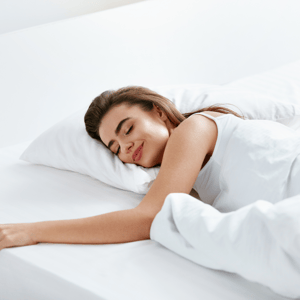What should I do to maintain a healthy sleep hygiene and when do I need help?
Healthy sleep is worth its weight in gold
Everyone knows that a healthy and deep sleep is essential to allow a good regeneration of its physical and mental balance.
Over the course of life, this number gradually decreases. While a newborn baby sleeps 14 to 17 hours a day, teenagers need 9 to 11 hours. Adults need only 7 to 9 hours of sleep per day. While the need of the elderly tends to decrease to 6 or even 5 hours of sleep per day.
It is very important to go to bed early to reach the deep sleep phase. This phase is longer during the first part of the night and can last up to an hour.
This phase allows the regeneration of the body physical and psychic balance. If we don't reach this phase, we wake up feeling numb, clumsy, and the fatigue can be seen on the face.
The recipe to maintain a healthy sleep hygiene is relatively simple:
- The room in which you sleep should have a temperature of about 18 degrees Celsius
- It is recommended to walk one hour before going to bed
- You should avoid intense light sources and stop consulting your smartphone 1 hour before going to bed (or in night mode only)
- It has been shown that the use of smartphones and the blue light of screens negatively impact the quality of sleep
- Whenever possible, choose a quiet environment
- Rituals, such as relaxation exercises or drinking a soothing cup of tea, can help you fall asleep
- Avoid evening sports activities, drinking alcohol, and smoking
Sleep disorders in Switzerland
If your sleep problems are regular and you have frequent insomnia, you should know that many Swiss people also suffer from sleep problems. In fact, only 5% of the Swiss population say they have no sleep problems at all. But more than a quarter suffer from acute sleep disorders.
Sleep disorders can also be a warning sign of pathologies such as diabetes, hyperthyroidism, infectious disease, cardiovascular problems, neurological disorders or osteoarthritis. It is then advisable to consult a health care professional.
Many insomniacs turn to barbiturates and other chemical pills to sleep. It is now known that these medications are addictive and harmful to health.
Acupuncture has been used successfully for millennia to treat insomnia without side effects. Numerous clinical studies have demonstrated its effectiveness in combating sleep disorders.

